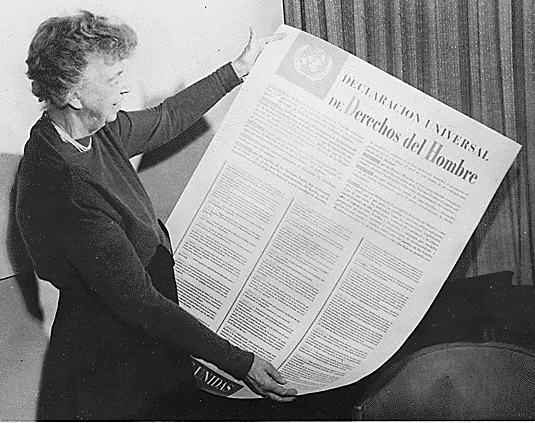This year marks the 70th anniversary of the Declaration of Human Rights. How has it changed the world as we know it?
In 1948 the Declaration was signed to prevent the horrors of WWII from re-occurring. It set up human rights standards for all and is the world’s most translated document, in over 500 languages. Many countries contributed, including Australia, China, Lebanon, the Soviet Union, the UK & the USA, and the UN Commission on Human Rights was formed with Eleanor Roosevelt as the first chair.
The declaration has spawned other important treaties against racial, gender, and ability discrimination. Now 198 countries allow women to vote, compared to 91 in 1948, 57 per cent of countries have a human rights institution and 111 countries have adopted press freedom laws.
But there is much work to be done. One in 10 children are still engaged in child labor, 250 million girls today were married before age 15, and 68.5 million people are fleeing war or persecution.
Campaigns like #StandUpforHumanRights strive to change this. Outgoing UN High Commissioner for Human Rights Zeid Ra’ad Al Hussein said that when anyone’s human rights are denied, everyone’s rights are undermined. He encouraged others to take a pledge to support human rights: “ I will stand up, I will raise my voice, I will take action, I will use my rights to stand up for your rights,” Mr Al Hussein said.
The Declaration appears as important today as it was 70 years ago.
This article originally appeared at Peacenews.com and was republished with permission.

